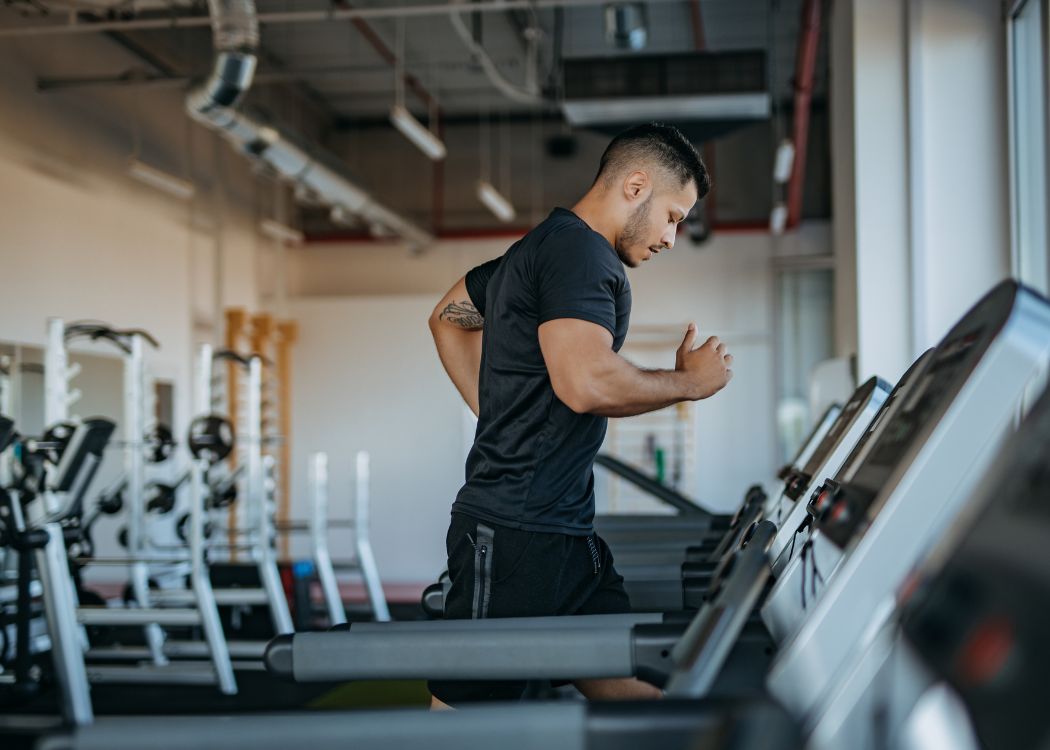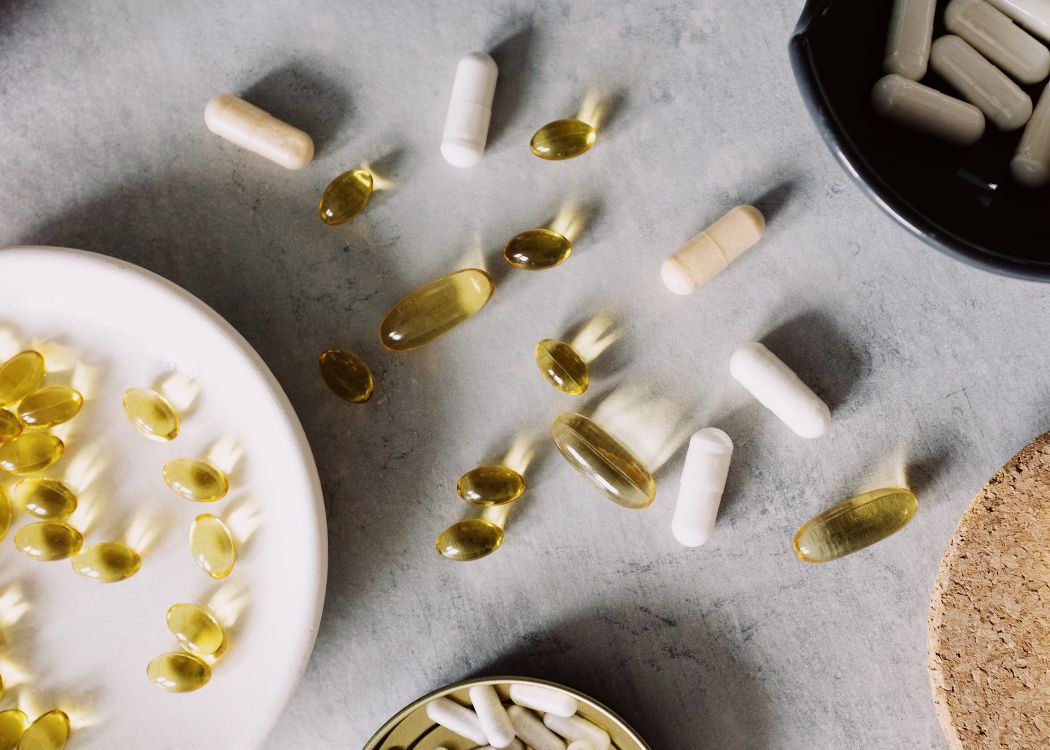Vitamins for Energy: Our Comprehensive Guide
Do you remember the craze amongst celebrities for vitamin B12 booster shots? Even without sign of a deficiency, they were attracted to the idea of taking a high dose of a vitamin for a guaranteed energy boost. Of course low energy isn’t exclusive to those with celebrity status. Periods of exhaustion and fatigue are something we all experience from time to time.
By Nina Sabat
There are many reasons why you may find your energy levels are not at their best. Amongst them are lifestyle factors, like eating a poor diet. Even seemingly ‘healthy choices’ can be nutritionally depleted which can soon add up to you feeling far from your best. This is because without the right amounts of key nutrients your body may struggle to make the energy you need.
Supplementing vitamins to boost energy can help overcome any nutritional gaps. As you already know, vitamin B12 can support your energy levels, but other vitamins play their part. This comprehensive guide explains why vitamin B12, vitamin C, vitamin D and B complex are ideal if you want to feel less tired. Also, it helps you confidently select the best vitamins for energy by showing you exactly why they work.
Why Do We Get Tired? Top Reasons for Low Energy Levels
Why is fatigue and low energy such a common problem? In a recent summary report by NICE, fatigue was one of the most frequent complaints amongst people seeking help from their GP.[1] In fact, there are many factors which can create feelings of exhaustion. Is this why you might experience low energy at some time in your life?
Some of the top reasons for low energy levels include:
- Health conditions including anaemia, chronic fatigue, flu and onging infection. Certain medications also have an energy-sapping effect
- Poor mental health states such as anxiety, depression or SAD (a winter depression)
- Lifestyle factors including poor sleep, emotional stress, no exercise, excess caffeine intake and eating a nutrient-poor diet

Low energy and tiredness is a common issue for many adults. However, answering the question, Why do we get tired? involves understanding the factors most relevant to you. Your level of health and wellness, current medications and mental health can all play a part. Your lifestyle also makes a sigificant contribution to creating sufficient energy to get through the day. Getting enough sleep, being physically active and managing stressors all support energy levels, as does improving your diet and the amount of nutrients you get.
What Are The Best Vitamins to Boost Energy?
Your body’s energy production system is a complex machine. Fortunately, it can be easily divided into 3 distinct phases (more on these in a moment) which create energy from the carbohydrates, proteins and fats you eat. The energy production system requires a mix of nutrients to run efficiently, including vitamin B12, vitamin C, vitamin D and vitamin B complex [2].
Vitamin B12 for Energy
Vitamin B12 (cobalamin) is the most well-known of the vitamins to boost energy vitamin. It’s needed in phase 2 of the energy production process. Vitamin B12 drives the enzymatic reactions which convert amino acids and fatty acids into energy. B12 helps to release energy from the proteins, fats and oils in your food.

Vitamin C to Fight Tiredness
A popular choice for fighting skin ageing and immunity-challenging bugs and nasties, vitamin C also helps to fight fatigue. It plays a role in phase 1, helping to create carnitine. Without carnitine it’s difficult to transport long chain fatty acids deeper into the energy production machine. Vitamin C helps open a doorway to turn fats into energy.
Shop vitamin C to fight tiredness
Vitamin D for Fatigue
Familiarly known as the sunshine vitamin, vitamin D is typically associated with strong bones and its mood boosting effects. But studies report its ability to relieve fatigue, particularly in people whose vitamin D levels are low.
- In one study those with a vitamin D deficiency took 50,000iu, three days a week for five weeks straight. By the end of the study when their vitamin levels had returned to normal they were significantly less likely to complain of feeling fatigued [3].
- In another study, that assessed vitamin D for fatigue, participants with a vitamin D deficiency took either a single dose of 100,000iu or a placebo. After four weeks significantly more vitamin D takers reported having more energy and feeling less fatigued [4].
... And The Rest of The B Vitamins for Energy
B complex refers to a collection of 8 B vitamins. B12 has already been introduced and B9 (folate) isn’t involved in energy production. What do the remaining 6 do?
- B1 (thiamine): Involved in phase 1 and phase 2. First it helps spark reactions needed to process glucose from carbohydrates and amino acids from proteins. Then it plays a role within the mitochondria, the tiny organs in your cells where all energy is created
- B2 (riboflavin): Working alongside B1 in phases 1 and 2, B2 also sparks phase 1 reactions needed to process fatty acids from dietary fats. It turns up again in phase 3
- B3 (niacin): Another busy B, driving processes in all 3 phases of energy production
- B5 (pantothenic acid): Working alongside B3, you’ll also find B5 in all 3 phases
- B6 (pyridoxine): Finally a B with time on it’s hands. B6 catalyses one phase 2 process - bringing amino acids into the mitochondria
- B8 (biotin): A co-factor in phase 2 enzyme pathways, biotin plays a part in the metabolism of carbohydrates, proteins and fats
Your body’s energy production processes are complex, with each of the 3 phases relying on a particular mix of vitamins. Amongst them are vitamin B12, vitamin C, vitamin D, and B complex. These are the best vitamins to boost energy.
Shop B complex vitamins for an energy boost
Now For The Science-y Bit: How Do Vitamins Work to Give Us Energy?
Finally the bit you’ve all been waiting for! You need vitamins to create energy, but how do they work?

Phase 1
Phase 1 of energy production is a process of macronutrient oxidation [2]. This is where carbohydrates, proteins and fats are broken down respectively to glucose, amino acids and fatty acids. As you saw, vitamins C, B2 and B3 are needed for oxidation. Eventually a molecule called acetyl coenzyme A is produced and shuttled off to phase 2.
Phase 2
Phase 2 happens in a special part of your cells - within the mitochondria. Here acetyl coenzyme A enters the citric acid cycle [2]. This is an 8-step cycle, which is only efficiently driven if you have plenty of the B vitamins. The cycle generates energy stored in molecules of NADH and FADH2.
Phase 3
Finally comes phase 3 which creates energy as ATP. Here, on the inner membranes of your mitochondria, NADH and FADH2 gift electrons to the electron transport chain [2]. Once again, the B vitamins play a part here. The chain is similar to passing on a hot potato which gradually cools down, but instead of heat, each time an electron is passes on in the chain it releases ATP energy.
Energy is produced in your cells in 3 distinct phases. Each process is driven by enzymes and vitamins work alongside helping the enzymes get their job done. If you’re lacking in vitamins, the enzymes slow down or completely run out of power. This is how vitamins work to boost your energy.
References
[1] NICE (2021) Tiredness/ fatigue in adults
[2] Tardy et al, 2022 Vitamins and Minerals for Energy, Fatigue and Cognition: A Narrative Review of the Biochemical and Clinical Evidence
[3] Roy et al, 2014 Correction of Low Vitamin D Improves Fatigue: Effect of Correction of Low Vitamin D in Fatigue Study (EViDiF Study)
[4] Nowak et al 2016 Effect of vitamin D3 on self-perceived fatigue
About Nina
Nina Sabat is a registered nutritional therapist and health advisor for Revital. She is focused on improving everyday wellbeing and loves helping shoppers find their ‘ideal supplement fit’. For more in-depth conversations, you can contact Nina through Revital’s NEW service - a consultation from the comfort of your own home.